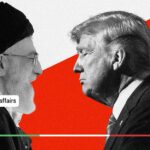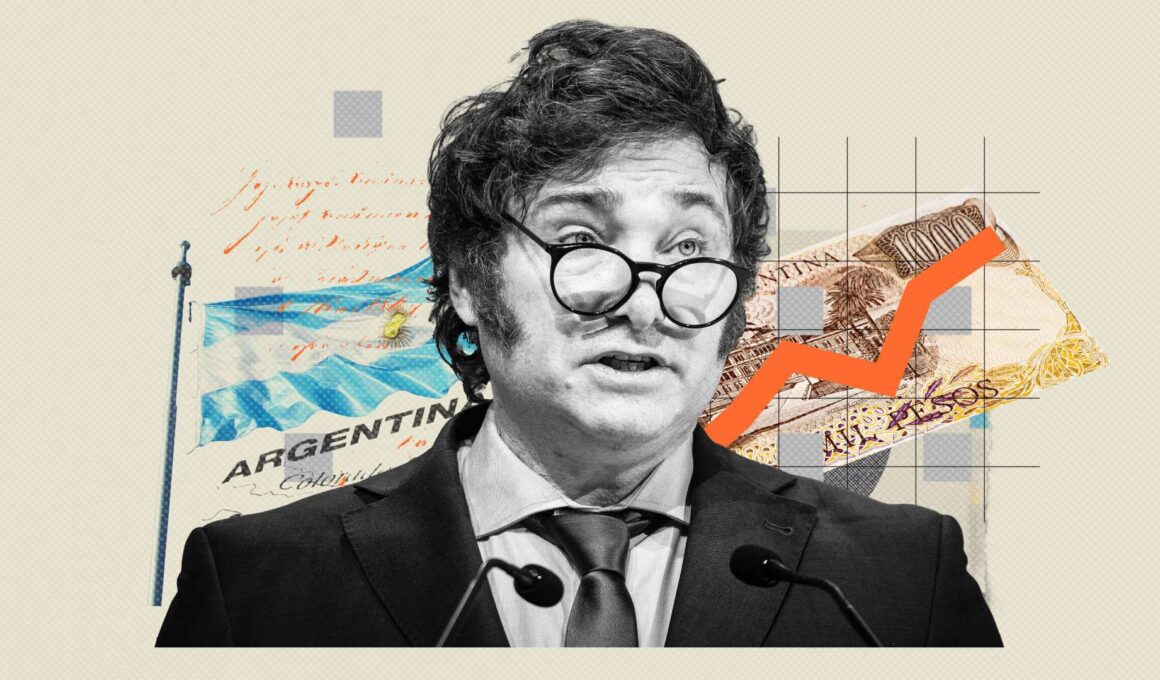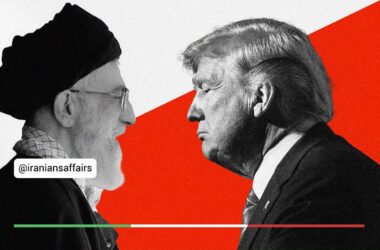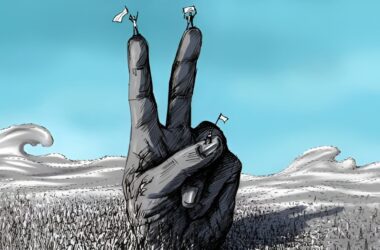Iran is currently facing one of the most challenging crises in its history—a nation blessed with immense natural and human resources brought to the brink of collapse due to mismanagement, corruption, and populist policies.
With the potential fall of the Islamic Republic and the emergence of a new world order, a national revolution of ideas and governance could enable Iran to overcome this crisis. This article aims to illustrate how free-market economics can fuel growth and prosperity in post-Islamic Republic Iran by drawing on the recent successful example of Argentina.
Under the leadership of Javier Milei, Argentina is undergoing a remarkable transformation after decades of corruption, economic turmoil, and social decline. The lessons from Milei’s bold reforms offer a powerful blueprint for rebuilding Iran’s economy, with Crown Prince Reza Pahlavi poised to lead a similar journey for his homeland.
Argentina Before Javier Milei: A Catastrophe Mirroring Iran’s Current Struggles
Before Javier Milei assumed the presidency, Argentina was on the brink of complete collapse. Monthly inflation had soared to 25%, with over 50% of the population living below the poverty line. Axel Kaiser, one of Milei’s advisors, described Argentina’s dire economic situation: “If monthly inflation of 25% had continued, annual inflation could have reached 177,000%. The central bank was entirely bankrupt with no reserves. Despite producing food for 400 million people, millions of Argentinians were going hungry. Corruption was rampant at every level of government and within labor unions.”
This grim scenario resonates deeply with Iranians: skyrocketing inflation, a devalued national currency, widespread poverty, and the absence of a sustainable economic system.
Argentina’s decline stemmed from its departure from classical liberal principles enshrined in its 1853 constitution, drafted by liberal thinker Juan Bautista Alberdi. During the Great Depression, Argentina adopted protectionist policies that stifled free trade, leading to economic stagnation. Later, Juan Domingo Perón introduced “Peronism,” a blend of populism and economic nationalism characterized by government intervention, union collusion, and anti-imperialist rhetoric.
However, under Milei’s leadership and adherence to classical liberalism, Argentina is witnessing a revolution in both its economic policies and its cultural outlook, reversing decades of stagnation.
Javier Milei’s Reforms: A Model for Iran’s Future
Milei’s transformative approach encompasses significant economic and cultural reforms, aimed at dismantling the entrenched corruption of Argentina’s political and economic systems. His measures include:
- Controlling Inflation
Milei curbed hyperinflation by drastically cutting government spending and halting excessive money printing. Monthly inflation has now dropped below 3%, a historic achievement for a country facing severe economic challenges.
- Reducing Government Size
In his first year, Milei reduced real government expenditures by 30%. Recognizing the burden of Argentina’s debt and systemic corruption, he advocated for a leaner, more efficient state.
- Combating Corruption
Milei exposed and prosecuted widespread corruption, fostering public trust in government institutions. His transparent governance marked a stark contrast to previous administrations marred by graft and mismanagement.
- Stabilizing the National Currency
By removing currency controls and allowing market forces to determine exchange rates, Milei stabilized the Argentine peso, restoring investor confidence and economic stability.
- Supporting the Poor
Despite implementing austerity measures, Milei allocated resources for direct financial support to the poorest citizens, alleviating the immediate burden of economic reforms.
Lessons for Iran
Iran’s current economic plight bears striking similarities to pre-Milei Argentina: systemic corruption, runaway inflation, and a decaying economic structure. Yet, just as Argentina managed to pivot under bold leadership, Iran too can chart a new path forward under Crown Prince Reza Pahlavi’s vision.
Key Economic Strategies for Iran’s Recovery
1. Curbing Inflation
• Cease uncontrolled money printing.
• Reduce dependency on oil revenues by diversifying income sources.
• Establish an independent monetary policy to stabilize the rial.
2. Fighting Corruption
• Introduce transparent government contracting.
• Establish an independent judiciary to prosecute corrupt officials and recover stolen assets.
3. Reducing Government Size
• Privatize state-owned enterprises to empower the private sector.
• Eliminate unnecessary expenditures and prioritize fiscal discipline.
4. Attracting Foreign Investment
• Create a business-friendly environment through clear and fair regulations.
• Guarantee economic security to attract international investors.
5. Supporting Vulnerable Populations
• Replace inefficient subsidies with direct financial assistance to those in need.
A Nationalist Vision for a Prosperous Iran
Nationalism rooted in unity and progress can galvanize Iranians toward rebuilding their country. Unlike divisive ideologies, modern nationalism emphasizes collective well-being and a shared vision for a prosperous future. By fostering a sense of ownership and pride in Iran’s resources and heritage, this approach can serve as a powerful catalyst for economic revival.
Iran’s transformation will require not only bold reforms but also cultural shifts. Public awareness campaigns and education can play a pivotal role in reshaping attitudes toward free-market principles, fostering entrepreneurship, and building trust in institutions.
Conclusion
Argentina’s journey under Javier Milei demonstrates that even nations in the direst circumstances can recover with decisive leadership and sound economic policies. For Iran, Crown Prince Reza Pahlavi represents the unifying figure capable of guiding the nation through this transition. By embracing the principles of classical liberalism and leveraging Iran’s immense potential, a brighter, freer, and more prosperous future is within reach.
Source: Institute of Economic Affairs, London
